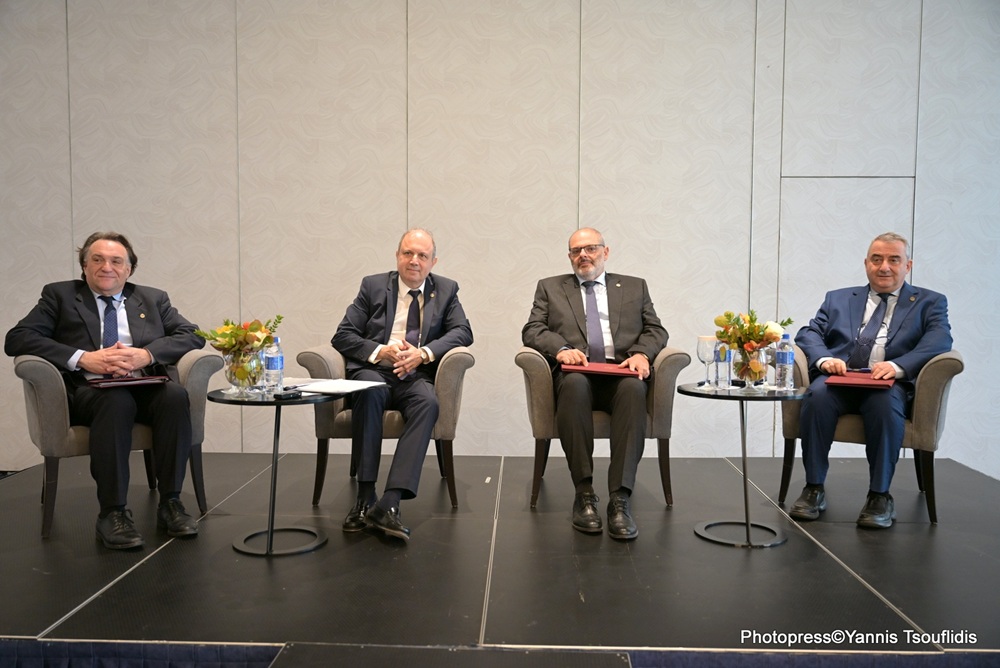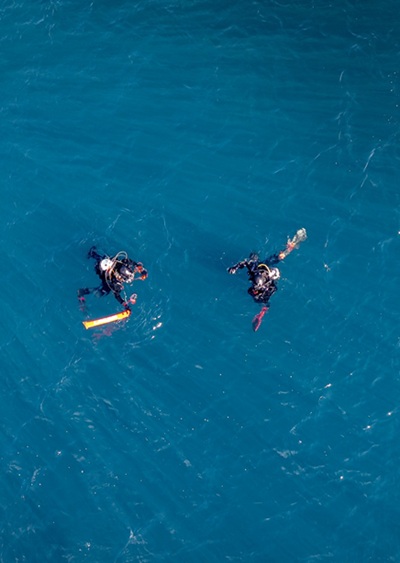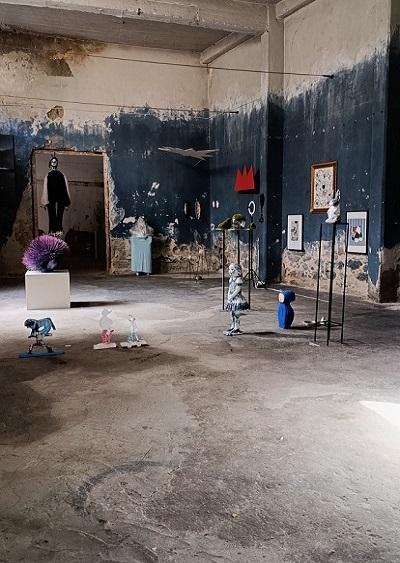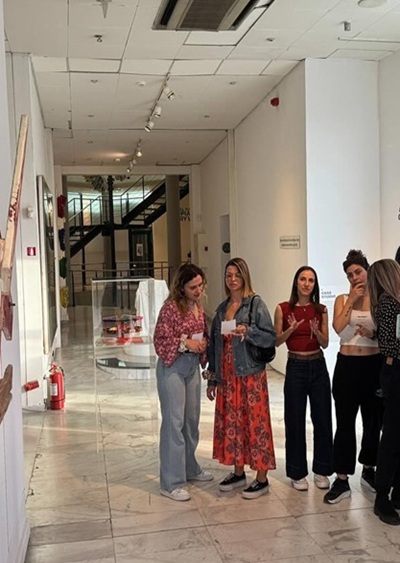
A press conference covering all topics was held on Tuesday, October 7, 2025 at 12:00, at the Makedonia Palace Hotel by the Rector of Aristotle University, Professor Kyriakos Anastasiades, and the Vice-Rectors of the institution.
The Rector of Aristotle University, Professor Kyriakos Anastasiadis, referred, among other things, to the great dynamism and influence of Aristotle University, emphasizing that it has a significant presence and influence throughout society. He explained that today’s event is the first official meeting of the new Rector’s Office with journalists, marking a different way for Aristotle University to communicate with society.
He emphasized that the goal of the new administration is for Aristotle University to become an active part of the city and society, to “break down” the symbolic and physical walls that isolate it, and to emerge as a beacon of knowledge, innovation, culture, and extroversion.
He referred to the main challenges facing Aristotle University, such as the “fatigue” of the infrastructure and systems of a century-old institution, the need for renewal, modernization, and digital transition in order to keep pace with its students, reconnecting with the city and society, as well as the major demographic and academic changes affecting higher education.
The Rector emphasized that the administration’s strategic planning aims at the sustainable development and substantial internationalization of Aristotle University, so that it can contribute to establishing our country as an educational destination and become a pillar of growth and contribution to the national economy through its connection with innovation and production.
In closing, he emphasized that the main purpose, priority, and mission of Aristotle University is its students, so that they may be supported, become competent and useful scientists, and realize their dreams while feeling proud of the institution at which they study.
The Vice-Rector for Research and Innovation, Professor Ioannis Rekanos, referred, among other things, to the current image of the University in the field of research and innovation, presenting indicative data that reflect its dynamics. As he noted, Aristotle University has several hundred thousand scientific publications with approximately 1.5 million citations, approximately 80 patents, and 19 spin-off companies.
He stressed that the goal of the Rector’s Office is for patents and spin-offs to generate revenue and tangible benefits for the University and society, not simply to be maintained as titles. He also referred to the strategy of internationalizing research, highlighting the importance of synergies between Aristotle University laboratories and researchers and other universities and research centers in Greece and abroad.
He announced that a strategic cooperation agreement between Aristotle University and the National Hellenic Research Foundation, one of the largest research institutions in the country, is about to be signed. At the same time, he stressed the importance of attracting foreign researchers and strengthening foreign language study programs, which can serve as channels for international cooperation.
He also referred to the “Researcher’s Charter,” an initiative that aims to map the needs and improve the working conditions of researchers, so that Aristotle University can become an attractive environment for young scientists from Greece and abroad.
He placed particular emphasis on connecting the University with society through the Technology Transfer Office, proposing that its role be expanded to cover the “transfer of knowledge” in the humanities and social sciences as well.
In closing, he emphasized that innovation comes from the younger generation and that Aristotle University aims to support students who participate in research groups or publish papers, cultivating their passion and “madness” for research, because, as he said, “the new will come from them.”
The Vice-Rector for Academic Affairs, Professor Nikolaos Mangioros, referred, among other things, to the central role played by education and student-centered learning in the University’s strategic planning and educational policy. As he emphasized, Aristotle University must follow the historical and cultural path of Thessaloniki, a cosmopolitan and inclusive city that has always been at the crossroads of civilizations.
He stressed that the University is not afraid of internationalisation, but has the infrastructure and, above all, the human resources to respond to contemporary educational challenges. Its strategy, he said, is based on a “student-centered education process,” which is not a technical issue, but rather a fundamental issue of perception and cultural change. The goal is for all University services and activities to revolve around students and their needs.
He also referred to the challenges associated with digitization, the reform and flexibility of study programs, and the connection between education and the labor market. All of these, he said, are part of a clear and measurable strategic plan.
As a prime example of this new educational philosophy, he presented the Center for Human Development, a structure that will serve as a hub for the dissemination of knowledge and cooperation with universities, communities, and institutions in Greece and abroad, while also supporting Greeks living abroad.
He also announced the organization, in May 2026, the Aristotle Innovation Forum, a major event that will bring together scientists, researchers, and organizations from Greece and abroad with the aim of exchanging experiences, providing feedback, and strengthening Aristotle University’s international academic networks.
Finally, he referred to the operation of the named chairs at the University, emphasizing that they constitute a targeted educational policy that connects the Foundation with society and the labor market, offering specialized knowledge for the benefit of both students and the wider community.
The Vice-Rector for International Relations, Outreach, Lifelong Learning, and Student Welfare, Professor Iakovos Michaelides, emphasized that Aristotle University is the largest university in the country and the only one that covers and serves all academic disciplines, from the humanities and social sciences to technology, the arts, and communication. This multidisciplinary approach, he said, offers the institution self-sufficiency in education and research, but also a particular advantage: “a sense of community.”
Despite the difficulties, infrastructure deficiencies, and differing opinions, the Vice-Rector emphasized that Aristotle University remains a unified community with a common identity and sense of belonging. The goal of the new administration is to capitalize on the advantages and address the disadvantages, building on the values of social solidarity and student welfare.
He referred in detail to the initiatives already underway:
-Upgrading student residences: Maintenance and renovation work has begun using ELKE’s own resources (€120,000), while from January 2026, with €1.5 million in funding from the Ministry of Education, to ensure decent living conditions for students.
-Student Club: Recognizing the need to modernize the infrastructure, the Rector’s Council allocated €100,000 for the creation of new, decent spaces in the Lower Club, which will house the University’s social structures. At the same time, a study is being prepared for the complete renovation of both clubs, with the aim of transforming them into modern, welcoming centers of student life.
-Social Structures: Particular emphasis is placed on the Equal Access Unit, which will be reinforced with 39 new scientists (psychologists, social workers, education specialists, IT specialists) through the NSRF, to support students with disabilities. The aim is to create personalized support files for each student in order to address their needs with respect and efficiency.
-Counseling Support Center (KESYPSY): New staff have been hired and plans are underway to launch a 24-hour psychological support hotline for students by June 2026.
-Panic Button: Reactivated and now operating via a mobile app, offering immediate assistance to anyone on campus who needs support.
Mr. Michailidis also emphasized the need to upgrade the campus and change its image. “We must not settle for decline, but strive for a space worthy of Aristotle,” he stressed. In this context, a broad landscaping and tree planting program is being implemented in collaboration with the Municipality of Thessaloniki, which will provide 2,000 new trees. The Departments of Architecture and Agriculture have already drawn up plans for the redevelopment of the area, with the aim of creating an open, green, and friendly campus that will serve as a landmark for the city and its residents.
The press conference concluded with a lunch at the same venue, where there was an opportunity for further discussion with media representatives.







Leave A Comment